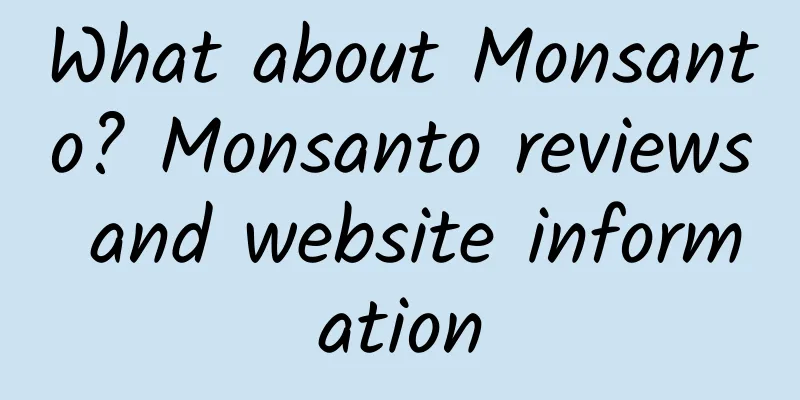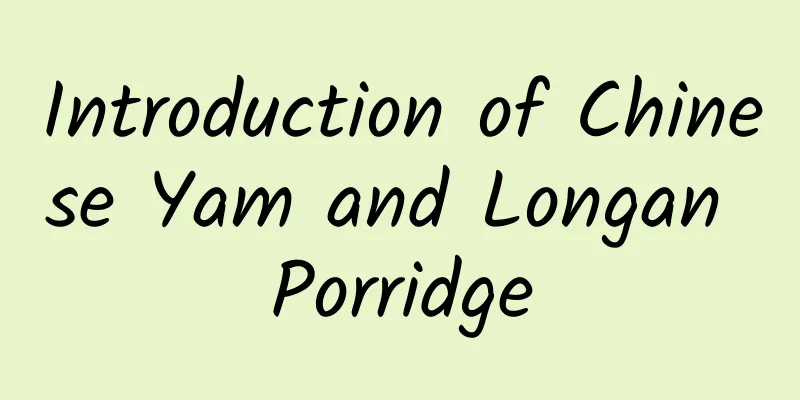What about Monsanto? Monsanto reviews and website information

|
What is Monsanto? Monsanto Company is an American biotechnology company founded in 1901 and headquartered in St. Louis, Missouri. Its products include Roundup herbicide and genetically modified seeds. Website: www.monsanto.com Monsanto: A leader in agriculture and biotechnologyMonsanto Company, an American biotechnology company founded in 1901, has become one of the most influential agricultural technology companies in the world with its innovative achievements in agriculture and biotechnology. Headquartered in St. Louis, Missouri, Monsanto is not only famous for its Roundup herbicide, but also for its research and development of genetically modified seeds. This article will explore Monsanto's historical background, core products, technological innovations, and its role in global agricultural development. The History of MonsantoThe history of Monsanto can be traced back to 1901, when it was founded by John Francis Queeny and initially focused on the production and sale of chemical products. The company name "Monsanto" comes from the name of the founder's wife Olga Monsanto Queeny. In the early days of its establishment, Monsanto mainly produced food additives and chemicals, such as caffeine, saccharin, etc. With the advancement of technology and changes in market demand, Monsanto gradually shifted its business focus to the agricultural sector in the mid-20th century. In the 1970s, Monsanto launched Roundup, which quickly became one of the world's best-selling herbicides. After entering the 21st century, Monsanto further strengthened its research and development of genetically modified crops, committed to improving agricultural production efficiency and sustainability through technological innovation. However, Monsanto's development has not been smooth sailing. The company has sparked widespread controversy and discussion on genetically modified technology and the use of pesticides. Despite this, Monsanto has always adhered to science as the basis and continued to explore new paths for agricultural development. In 2018, Monsanto was acquired by German chemical giant Bayer AG, marking a new stage of development for this century-old company. Core product and technology innovationMonsanto's core products mainly include Roundup herbicide and genetically modified seeds. The research and development and promotion of these products have not only changed the production methods of traditional agriculture, but also provided new solutions for global food security and environmental protection. RoundupRoundup herbicide is a broad-spectrum herbicide launched by Monsanto in 1974. Its main ingredient is glyphosate. Glyphosate is a non-selective herbicide that can effectively inhibit the activity of specific enzymes in plants, thereby killing weeds. Due to its high efficiency and environmental protection characteristics, Roundup herbicide quickly became a product widely used by farmers around the world. However, the use of Roundup herbicides has also sparked some controversy. Some studies have pointed out that long-term exposure to glyphosate may have potential effects on human health, and it has even been listed as a "possible carcinogen" by the International Agency for Research on Cancer (IARC). In response, Monsanto insists that its products meet strict regulatory standards and is actively cooperating with scientific research institutions to conduct further safety assessments. Genetically modified seedsMonsanto's research in the field of genetically modified seeds began in the 1980s, aiming to improve crop varieties through genetic engineering technology to make them resistant to pests and diseases, drought-tolerant, and high-yielding. For example, Monsanto's glyphosate-resistant genetically modified soybeans (Roundup Ready Soybean) can remain unaffected when sprayed with Roundup herbicides, thereby significantly reducing the competitive pressure of weeds on crops. In addition, Monsanto has developed a series of insect-resistant crops, such as Bt corn and Bt cotton, which introduce Bacillus thuringiensis (Bt) genes into these crops, giving them the ability to resist pests, thereby reducing the use of chemical pesticides. Although genetically modified technology has brought significant benefits to agricultural production, it has also aroused public concerns about its safety and ethics. Some consumers are worried that genetically modified foods may have unknown effects on human health, and question whether patent protection of genetically modified seeds will lead to seed companies' monopoly on agricultural resources. In response to these issues, Monsanto has worked hard to eliminate public doubts through transparent operations and scientific research. Role in global agricultural developmentAs a world-leading agricultural technology company, Monsanto has played an important role in promoting agricultural modernization and sustainable development. The following is a detailed description of its contributions from several aspects: Improve agricultural production efficiencyMonsanto's genetically modified seeds and Roundup herbicides provide farmers with a complete set of agricultural solutions to help them manage farmland more efficiently. For example, glyphosate-resistant crops allow farmers to remove weeds in the field with a single spray, reducing labor intensity and cost input. At the same time, insect-resistant crops reduce the damage of pests to crops and increase yield per unit area. Promoting sustainable agricultural developmentMonsanto's technological innovation not only focuses on increasing yields, but also on reducing the impact of agriculture on the environment. For example, the promotion of glyphosate-resistant crops allows farmers to adopt no-till or minimum-till planting methods, thereby reducing soil erosion and greenhouse gas emissions. In addition, the use of insect-resistant crops reduces the demand for chemical pesticides and reduces the risk of pollution to ecosystems and water resources. Addressing global food security challengesAs the world's population continues to grow and the impact of climate change intensifies, how to ensure global food security has become an urgent issue to be addressed. Monsanto helps farmers achieve stable production under extreme climate conditions by developing crop varieties that are highly adaptable, such as drought-resistant and saline-tolerant. At the same time, the company also actively participates in international cooperation projects, providing technical support and training to developing countries to help local agricultural development. Website Platform and Information DisclosureIn order to better communicate with the public, Monsanto has established an official website at www.monsanto.com. The website not only displays the company's history, mission and values, but also details its core products and technological advantages. In addition, Monsanto publishes the latest research results, industry trends and social responsibility reports on the website, striving to improve transparency and credibility. On the website, users can find popular science articles about GMO technology, interviews with scientists, and evaluation reports from independent research institutions. These contents are designed to help the public fully understand the scientific basis of GMO technology and its potential impacts. At the same time, Monsanto has also set up a special interactive platform to encourage users to ask questions and participate in discussions, further enhancing interaction with consumers. Future Prospects and ChallengesAs a leader in agricultural technology, Monsanto will continue to face both opportunities and challenges in the future. On the one hand, the growing global demand for food and the limited natural resources require Monsanto to continue to innovate and develop more efficient and environmentally friendly agricultural solutions. On the other hand, the public's doubts about genetically modified technology and the use of pesticides also require Monsanto to adopt a more open and responsible attitude and actively respond to social concerns. To this end, Monsanto plans to further increase its R&D investment, especially in the fields of precision agriculture and digital agriculture. By combining emerging technologies such as big data and artificial intelligence, Monsanto hopes to provide farmers with more personalized services and support to help them achieve the best production results under different environmental conditions. At the same time, Monsanto will continue to strengthen cooperation with governments, academia, non-governmental organizations and other parties to jointly promote the formulation and improvement of agricultural policies. By establishing an open dialogue mechanism, Monsanto is committed to building a more inclusive and sustainable agricultural ecosystem. ConclusionAs a century-old company, Monsanto has witnessed the transformation of agricultural technology from traditional chemical industry to modern biotechnology. Whether it is Roundup herbicide or genetically modified seeds, Monsanto's products and technologies have left a deep mark on the development of global agriculture. Despite facing controversy and challenges, Monsanto has always adhered to the development concept driven by science and strived to create a better future for mankind. As stated on Monsanto’s official website: “Our goal is to give every seed the opportunity to thrive and every family access to adequate food.” This is not only Monsanto’s corporate vision, but also its solemn commitment to global agricultural development. |
<<: How is Jeonbuk Daily? Jeonbuk Daily reviews and website information
Recommend
The efficacy and function of purple kohlrabi
Do you know what are the effects and functions of...
The use of expired spoiled milk
In our daily life, milk often expires and spoils....
How is German kitchenware WMF? German kitchenware WMF reviews and website information
What is the website of German kitchenware WMF? WMF...
The role and efficacy of wax gourd peel and the medicinal value of wax gourd peel
Winter melon is the most common and ordinary food...
What are the medicinal effects of corn silk?
Corn silk is very common in our daily life. It is...
Chicken porridge recipe
How much do you know about the recipe of native ch...
The efficacy and function of Qinghai ginseng fruit
Qinghai ginseng fruit is the most famous local sp...
What are the benefits of boiling aloe leaves in water? What are the benefits and functions of boiling aloe leaves in water?
In daily life, people not only like to grow aloe ...
The efficacy and function of mung bean soup
Mung bean soup locks in all the nutrients of mung...
The efficacy and function of wine soaked onions
I usually see many people like to soak onions in ...
Nutritional value and eating methods of hair vegetable
Nostoc is a type of algae, but it is very nutriti...
What is Ophiopogon japonicus? Cultivation techniques of Ophiopogon japonicus
When it comes to Ophiopogon japonicus, many peopl...
Is it good to be a vegetarian? What are the benefits of being a vegetarian?
Now our quality of life is getting better and bet...
How to recover quickly after burns and how to remove burn scars
Burns are the most common surgical diseases in li...
The efficacy and function of bean sprouts
Bean sprouts are a dish that everyone has eaten. ...









